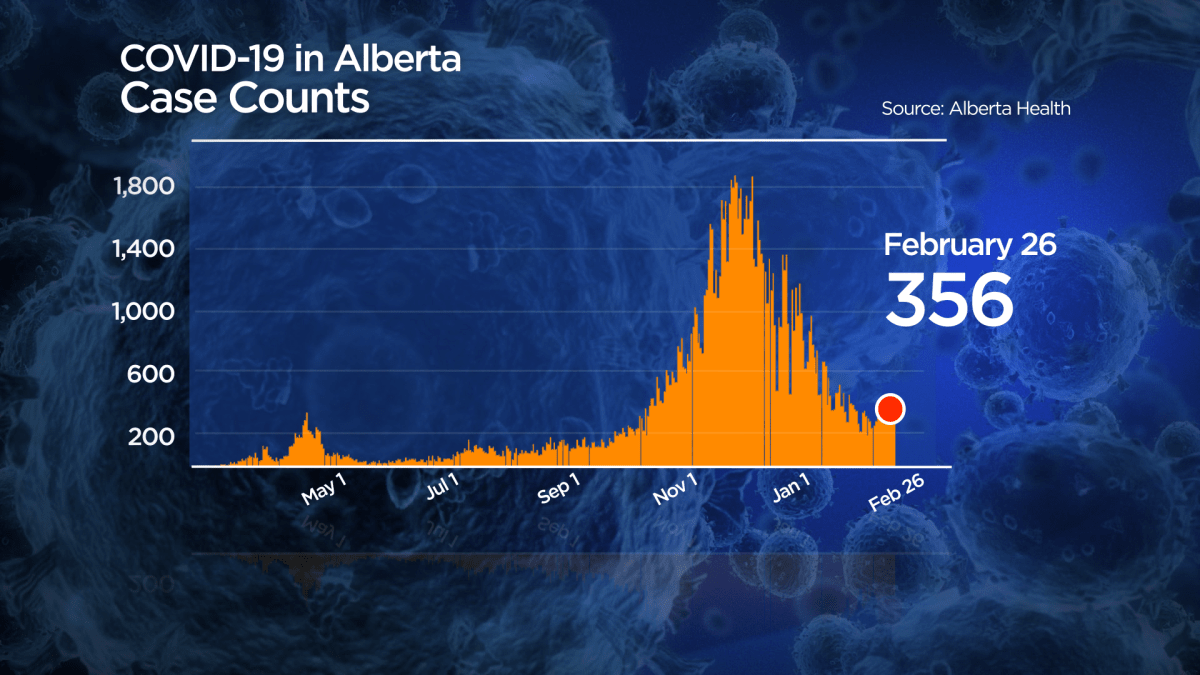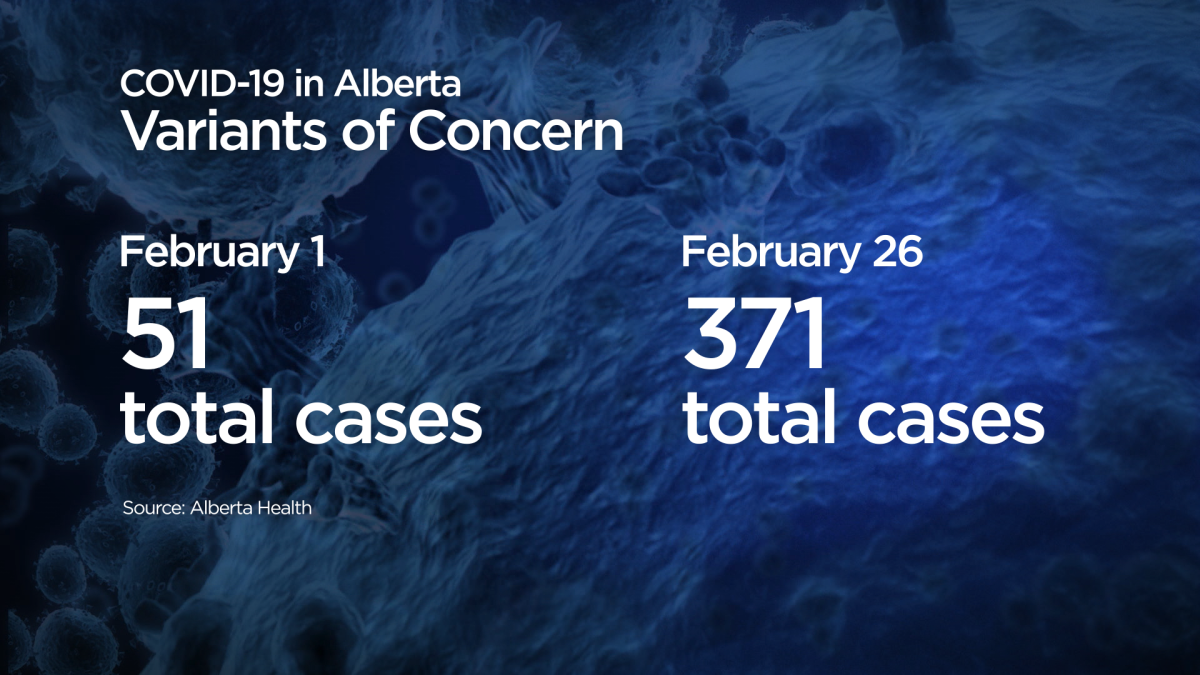Albertans have been living in the COVID-19 pandemic for nearly a year, and while vaccinations are underway, there is concern the province could see a third wave.

The second wave saw high case counts in the province, which overwhelmed the contact-tracing system and saw severe strain on the hospital system.
Worries about a possible third wave come as the province prepares to make a decision, which could come Monday at the earliest, on whether to move into Phase 2 of reopening.
Case counts and positivity rates have fallen as the second wave subsided but numbers remain stubbornly high. The R value has been steadily rising since the end of January.

Ryan Imgrund, a biostatistician who works with Ottawa Public Health, said in specific regards to the rising R value, that it seems to be the start of something.
The R value indicates how many people one positive case will go on to infect. Epidemiologists say it is important to keep the R value below one and Imgrund said, with the transmissibility of variants, an R value of 0.7 or 0.8 would be better to sustain the growth associated with the variant.
READ MORE: 399 new cases of COVID-19 confirmed in Alberta on Thursday
For the week of Feb. 15-21, the provincial R value was 1.03, the Edmonton zone stood at 0.93, the Calgary zone was at 0.95 while the rest of Alberta stood at 1.13.
“We know Alberta has started to reopen. They are seeing increases in some of the areas of Alberta and now it’s about how fast you actually respond to it,” he said.
“If you start to respond to case values and even the reproductive rate, you are about one week behind where things will be. If you implement changes today, you won’t see the case count drop or plateau for about seven days or so.”

Imgrund said implementing changes two weeks from now would mean cases grow for three weeks and with a reproductive rate above one, cases can get out of control very quickly.
Dr. Kirsten Fiest, an epidemiologist at the University of Calgary, said a third wave is a possibility if the province opens too quickly, if there isn’t control over the variants and if vaccinations happen slowly.
“It needs to be done with an abundance of caution so we don’t end up with the situation we were in in the fall,” Fiest said.
Fiest said she hopes the government would not take as long to step in and impose restrictions to curb a possible third wave as it did when Alberta was facing its second wave.
“We need to learn from what happened in that second wave and ensure that we’re not setting ourselves up for a third wave, especially, we have vaccine. We shouldn’t be in this situation.
“We shouldn’t be talking about a third wave.”
The number of variant cases in the province have been on the rise. On Feb. 1, there were 51 total cases; on Feb. 26, there were 371 total cases – a jump of 627 per cent.

Chelsea Doktorchik, an epidemiologist with the Centre for Health Informatics, said the rising number of variant cases is cause for concern.
“In terms of a third wave, I think that there is reason to be concerned for a third wave because of this variant.
“Because of the transmissibility of this new variant, I would not be surprised if it did increase and we did see a third wave,” she said.
She said, in regards to whether a third wave is impending, it will be important to keep an eye on case counts and the province’s R value.
Doktorchik echoes the sentiment that careful thought needs to be put into lifting restrictions and re-evaluating it every step of the way.
“Basically, it’s a déjà vu situation from last spring where we’re seeing a new variant, a new virus and we don’t know anything about it,” she said.
“Just to not rush ahead and, at every lifting of a restriction, be very careful and keep that new variant in mind so that we’re protecting those who can’t protect themselves.”
Doktokchik said it’s hard to accurately predict when a third wave will occur but said vaccinations can play a role.
“It’s a very incredible tool to protect our population from a third wave,” she said.
“If we can get a certain threshold of people in Alberta vaccinated, we can develop herd immunity and ideally lower the case load and protect our vulnerable people.”








Comments